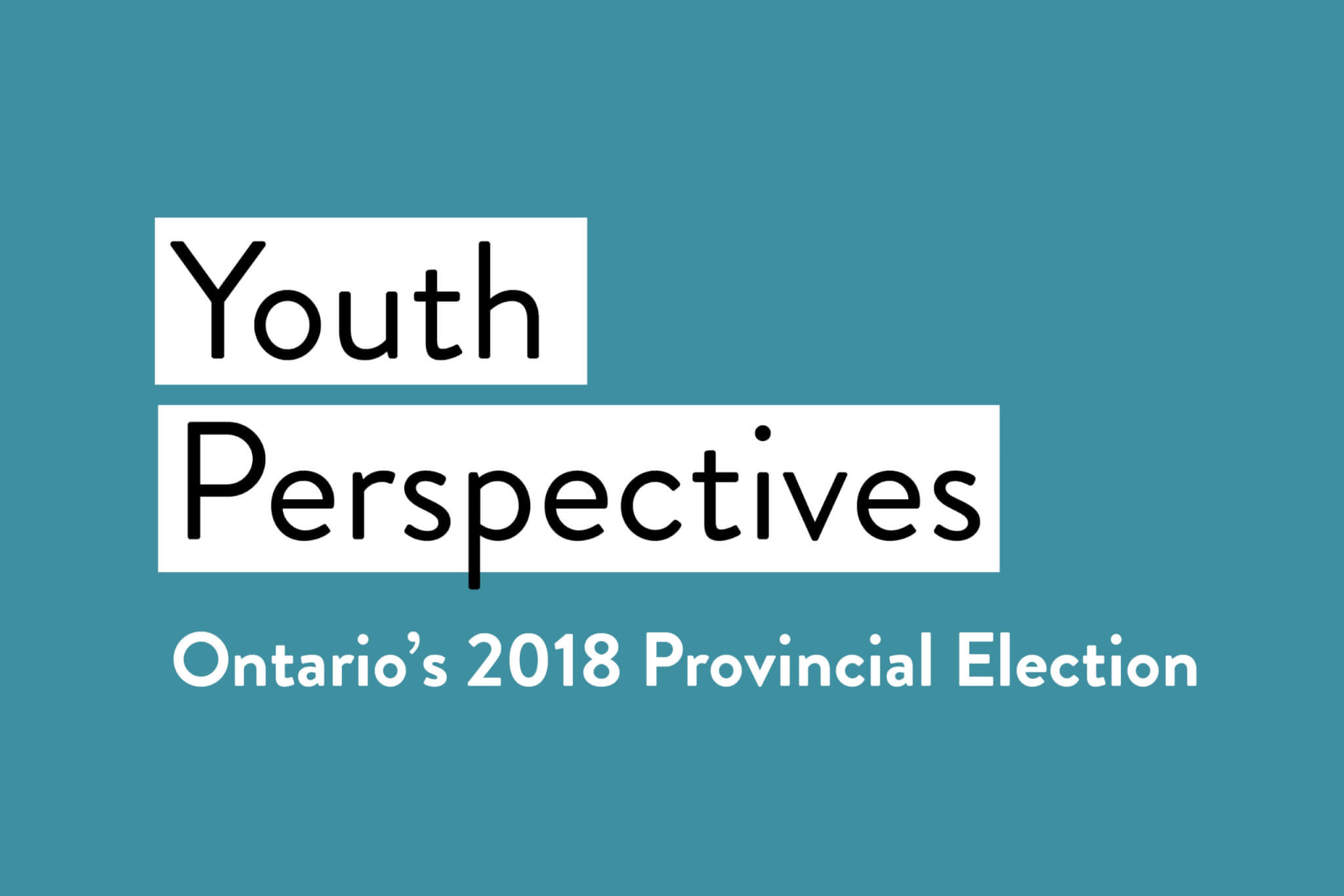A Message to Ontario’s Politicians: We Are Not Your Photo-Op
On May 7, 2018, four YouthREX Youth Research Assistants attended a youth-focused town hall hosted by Laidlaw Foundation, TVO, For Youth Initiative, and Twitter Canada. There, leaders from three of Ontario’s political parties described their platforms and answered audience questions. In this blog, Jathusha Mahenthirarajan shares her thoughts on the experience as a civically-engaged young person ahead of the June 7th Provincial Election.
When I saw Laidlaw Foundation was hosting a town hall for youth to hear from Ontario’s provincial party leaders while I was scrolling through Twitter, I signed up immediately. This was an unparalleled opportunity for young people like myself to engage with political leaders on issues of importance to us. I messaged several friends about it excitedly.
It sunk in that this could be yet another one of my tokenistic political experiences, where my voice as a young person is included for optics but left out of policy-making.
Yet I remained optimistic, determined to take up space and make the most of it.
When I walked into the venue, something struck me and bothered me right away. It was clear there were not many young people under the age of 18. This event happened on a school day during school hours, meaning that high school students could not attend. For young people who work during the day, unable to take time off, this event was equally inaccessible. Like Prime Minister Trudeau and the Liberal Party did in 2015, politicians need to engage with young voters where we are. For example, perhaps the town hall could have been hosted in an educational setting. On a more positive note, I do appreciate that Laidlaw Foundation engaged young people through social media, allowing anyone to tweet questions, and that the event was also livestreamed.
As I thought of the questions I wanted to tweet, I did my best to keep in mind those who could not “be at the table,” and try to figure out how I could amplify their concerns. Out of the many questions I tweeted, one was actually chosen and posed to NDP Leader Andrea Horwath: “Equity is just a buzzword when there is a lack of nationwide data collection that’s disaggregated by race, colour, ethnic background, nation of origin, and other identities. Data makes better policy. What is your party’s take on this?” I was glad to hear that the NDP would not only collect this data, but that they understood that it does not end there – we have to act on the insights our data provides.
During the event, Mike Schreiner got much more applause than Kathleen Wynne and Andrea Howarth. He started off his speech with humility, talking about how, even though he knows he will not win, he is here because of his hope for a better world. His answers to audience questions were genuine and reflective of that hope. The crowd’s reaction to Schreiner sends a message: Politicians, hear us loud and clear when we say we want to know the real you, not the “polished and perfect” you. Authentically engage with us at our schools, in our communities, and on social media. We don’t want lip service. Answer our questions by proposing solutions, instead of reiterating the issues, which we know of too well. Talk about your failures, because accountability and transparency are more effective in your callout for civic engagement.
The fact that Doug Ford declined the invitation and didn’t show up tells Ontario’s youth that we don’t matter to him and his party, and he won’t show up for us when we need his leadership. After the town hall, a young person YouthREX talked to, Muhammad Hannad Ahsan, stated it perfectly: “I would want to say something to Doug Ford but I can’t say it on camera.”
We want politicians who are champions for people. If we don’t feel that you care about us, why should we care about you?
Politicians cannot take credit for giving young people voices through this town hall. Young people already have voices. Young people have been talking. Now, we are asking that politicians not only actively listen, but incorporate our narratives and lived experiences to inform policies. At this town hall, young people showed up (unlike Doug Ford), and we made it clear that we will hold these leaders accountable to us.
Young people are a force to be reckoned with, especially when millennials will be the biggest cohort of voters in the 2019 federal election. The best way to end this blog post is with what Akeem Robertson, a 27-year-old interested in politics I met at the event, passionately told me with conviction, “Whoever wins, please keep the people in mind so we don’t feel betrayed. Walk the talk.” That’s the least we can ask for.


